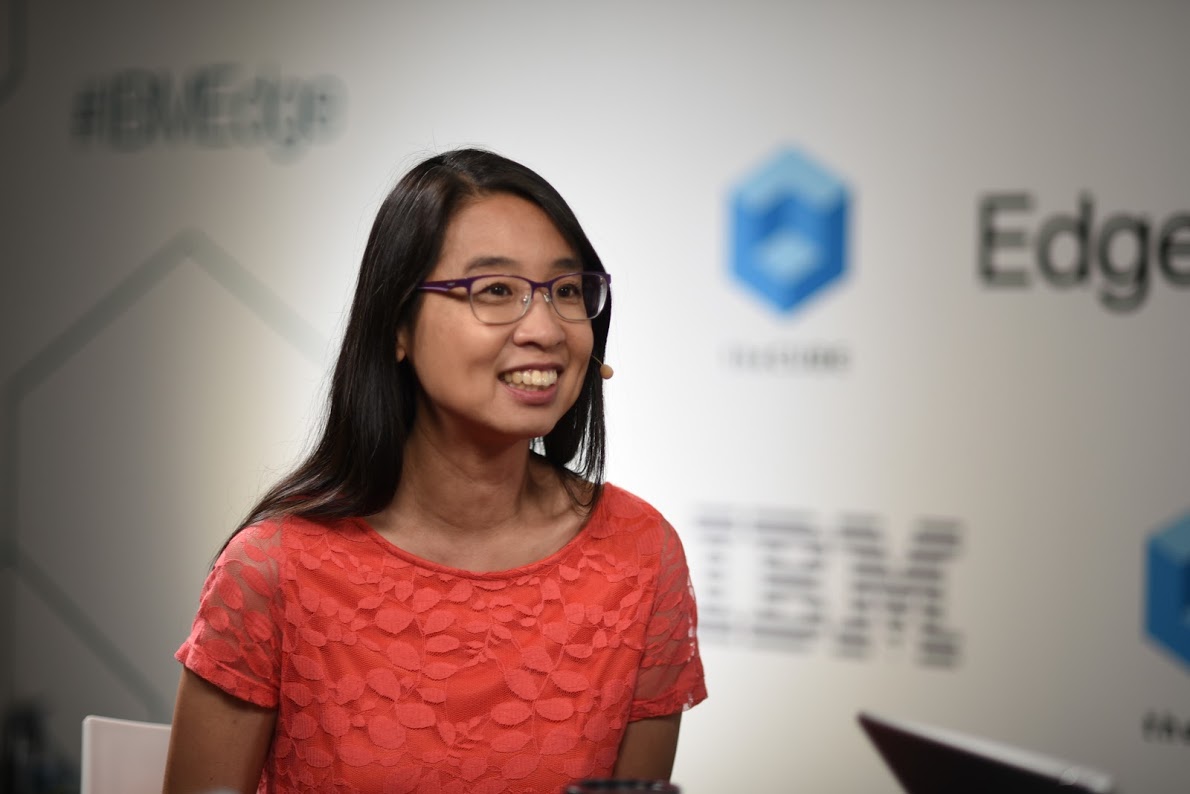How open source is bringing blockchain to the enterprise
- by 7wData

During her part of the keynote address at IBM Edge 2016, Donna Dillenberger, IBM fellow, Watson Research Center, at IBM, demonstrated how analytics and transactions work together using The Linux Foundation’s version of blockchain, called Hyperledger.
Fresh off the keynote stage, Dillenberger joined Dave Vellante (@dvellante) and Stu Miniman (@stu), cohosts of theCUBE, from the SiliconANGLE Media team, to provide insight into the evolution of blockchain and how Open Source is bringing blockchain to the enterprise.
This week, theCUBE features Donna Dillenberger in our Women in Tech column.
Vellante opened the interview discussing Dillenberger’s part of the keynote address. He asked about the importance of open-source projects to IBM. She responded by noting the sum is greater than the separate parts.
“Of those 10 projects, some of them are Node.js, Open Container, Eclipse, OpenPOWER, Open Mainframe and Spark; everyone has their own expertise. Every company develops a set of core competencies. For example, IBM, we’re really good at scalability and security, but when we partner that [knowledge] with people who donate their expertise in analytics, their expertise in Docker containers, that’s like the best date,” she said.
Dillenberger continued: “You complement each other; you push each other on. There’s nothing that sharpens minds like other minds; and to have other people with such great skills, it not only brings IBM people to a better level of expertise … we’re better together than separate.”
Vellante then led a discussion about blockchain. He was impressed that IBM saw the technology implications early on and inquired about what led the company to The Linux Foundation’s Hyperledger Project. Dillenberger’s response described a protocol that had merit but needed improvement.
“bitcoin started in 2009 as a result of the Great Recession. There were a bunch of people [who] wanted to build this cryptocurrency that would be free of central governments and banks. To do that they thought, We can’t even rely on computer systems. We have to ensure that bitcoin would be hosted and distributed in computer systems that no one owned,” she explained.
“That led to the creation of a protocol that could run on distributed computers, and even if one computer fails, the Bitcoin network would last. If a set of computers were compromised, the data would also still have integrity, and that led to the creation of the blockchain protocol,” Dillenberger explained.
[Social9_Share class=”s9-widget-wrapper”]
Upcoming Events
Evolving Your Data Architecture for Trustworthy Generative AI
18 April 2024
5 PM CET – 6 PM CET
Read MoreShift Difficult Problems Left with Graph Analysis on Streaming Data
29 April 2024
12 PM ET – 1 PM ET
Read More



